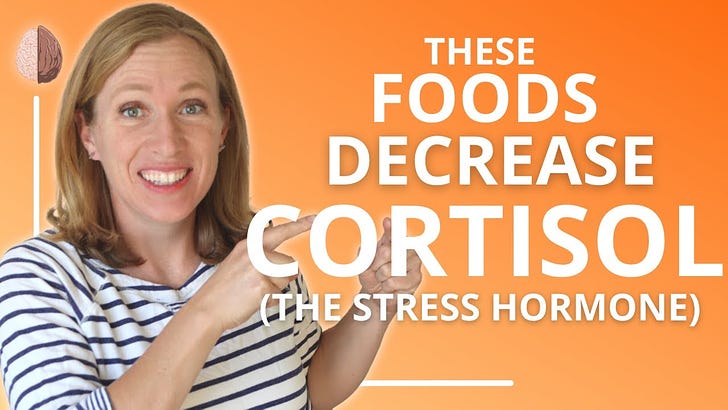Unlock Serenity: Nourish Your Body with 5 Stress-Busting Foods!
Cortisol, the stress hormone can be managed through diet
Emma McAdam, a licensed marriage and family therapist, discusses the significance of cortisol, the stress hormone, and how its levels can be managed through diet.
Cortisol is crucial for various bodily functions, including regulating sleep cycles, inflammation, blood pressure, and blood sugar levels. It is released in response to physical or mental threats, triggering the fight or flight response. While short-term exposure to cortisol is beneficial, prolonged exposure can lead to chronic stress response, causing anxiety, depression, fatigue, inflammation, weight gain, high blood pressure, decreased immune system, and an increased risk of diabetes and heart disease.
Emma emphasizes the impact of diet on cortisol levels, noting that a traditional American diet high in fat, sugar, and carbs leads to elevated cortisol levels compared to a diet rich in fruits, vegetables, whole grains, and polyunsaturated fats.
An anti-inflammatory diet can counteract the impact of cortisol, as inflammation is a low-level stress response in the body, damaging healthy tissue and leading to chronic stress. Emma suggests that the Mediterranean diet is effective in reducing inflammation and improving mental health.
Emma recommends the following foods to naturally decrease cortisol levels:
1. Foods High in B Vitamins: These help metabolize cortisol, especially those high in B12 like organ meat, beef, chicken, eggs, nutritional yeast, and fortified cereals.
2. Foods High in Omega-3s: These reduce inflammation and include fish, walnuts, avocados, salmon, chia, flax, olive oil, tuna, mackerel, herring, and anchovies.
3. Magnesium-Rich Foods: Essential for many bodily processes, including relaxing muscles, reducing inflammation, and metabolizing cortisol. Sources include pumpkin seeds, almonds, pistachios, broccoli, bananas, avocado, artichokes, spinach, and dark chocolate.
4. Protein-Rich Foods: These help regulate blood sugar and decrease cortisol, especially beans and legumes.
5. Foods Promoting Healthy Gut Microbiome: High fiber foods and a variety of fruits and vegetables are crucial. Probiotics like live yogurt, kimchi, kombucha, kefir, and sauerkraut are also beneficial.
Emma also stresses the importance of staying well hydrated as dehydration is a stressor to the body, and avoiding foods that increase cortisol like alcohol, caffeine, saturated fats, simple sugars, and simple carbs.
Key Takeaways:
Cortisol, the stress hormone, is crucial for various bodily functions but prolonged exposure can lead to several health issues.
Diet plays a significant role in managing cortisol levels. An anti-inflammatory diet, similar to the Mediterranean diet, is recommended.
Foods high in B vitamins, Omega-3s, and Magnesium are beneficial in reducing cortisol levels.
Regular meals, protein-rich foods, and foods promoting a healthy gut microbiome are essential for cortisol management.
Hydration is crucial, and foods and substances that increase cortisol, such as alcohol and caffeine, should be avoided.
Whole foods are preferred over supplements for nutritional intake.


